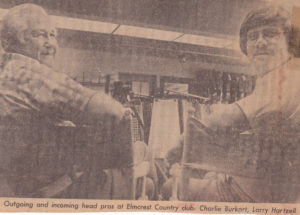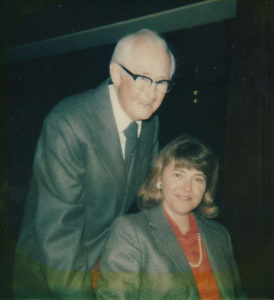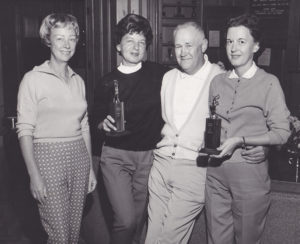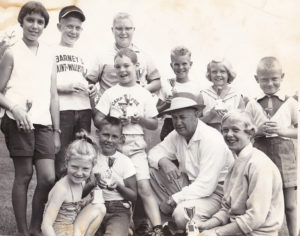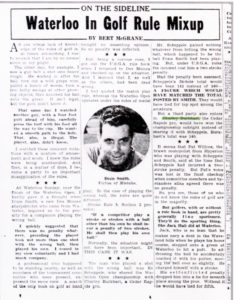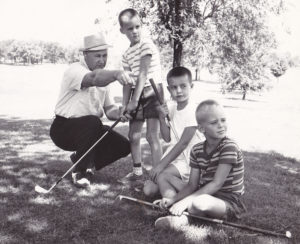CHARLES BURKART
Cedar Rapids | Inducted 2018 | Category: Club Professional/ Historical Selection
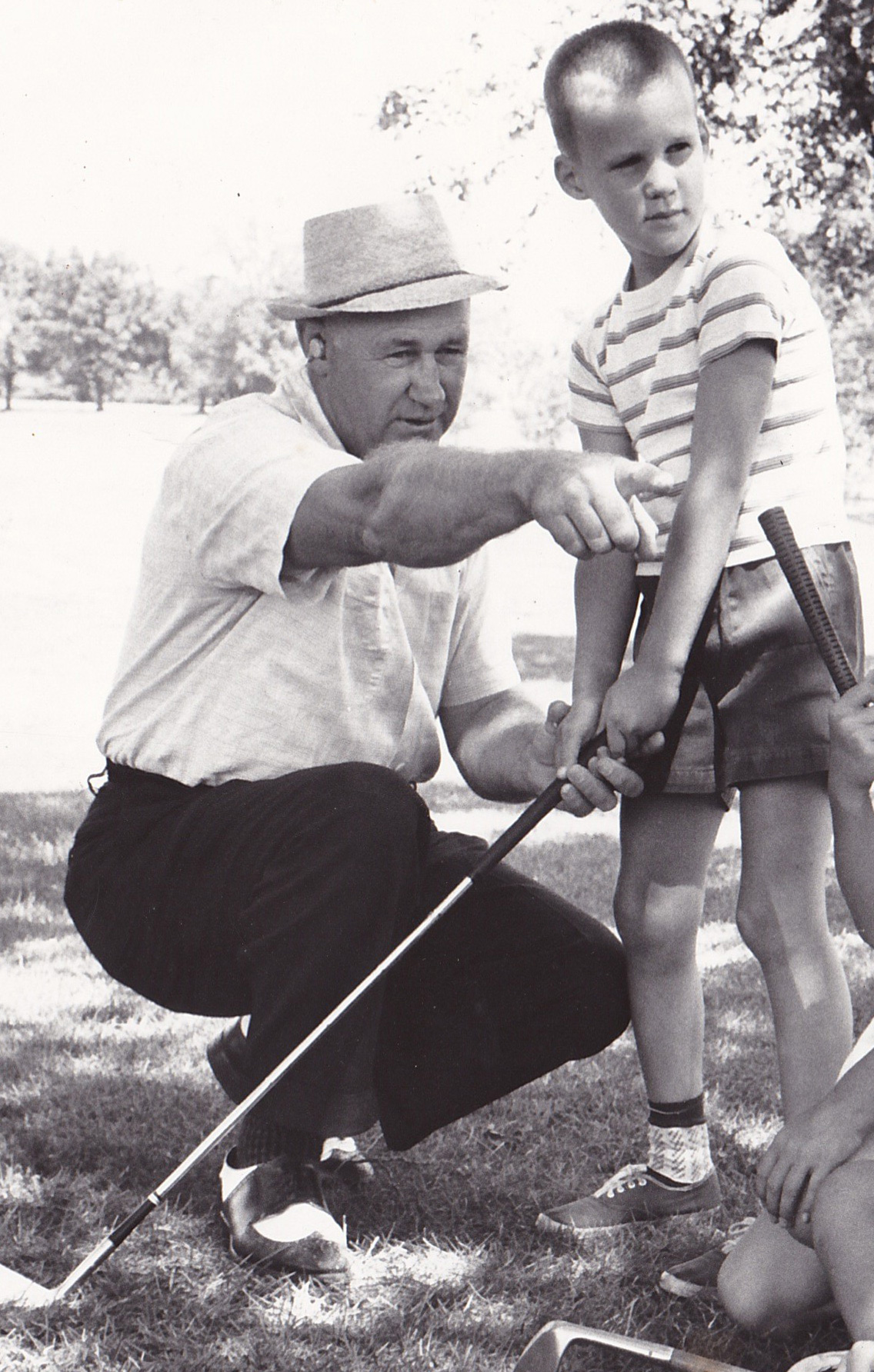
Charles (Charlie) Burkart, who was involved in golf at an early age and would become a golf pro in Iowa City, began his career in the early 1930s when he borrowed money to buy a driving range – the first such thing in Marion, Iowa. Later a gentleman by the name of Nick Carter built a daily fee golf course (then named Kenmore) in 1934 and hired Burkart as Head Professional. In July of 1947, several prominent businessmen leased the golf course from Mr. Carter, thus forming Elmcrest Country Club.
Burkart was there for 42 years, serving the community and the membership of Elmcrest, before retiring in 1975.
Burkart was known as an excellent player for his flawless swing and record-breaking rounds of golf. One of his greatest contributions to the game was his love of children and his efforts to involve them by organizing youth clinics and programs. Burkart spent many of his hours working patiently with junior golfers, diligently teaching them golf etiquette and the skills to play the game. His belief in sharing and passing down the traditional ‘grand old game’ served to make him one of the great promoters of golf in Iowa.
Burkart was a life member of the Professional Golfers Association of America and Past President of the Iowa PGA Section. He truly believed and exemplified the Code of Ethics of the PGA, which states that the name “Professional Golfer” must be a synonym with the pledge of honor, service and fair dealing, professional integrity, fidelity to the game, responsibility to employers and employees and others. Charlie lived by these rules.
Today the memory of Charles Burkart lives on. The Charlie Burkart Scholarship Fund, administered by the Iowa PGA Section, formed in 1984 by his daughter, the late Lynn Hendryx, and former Elmcrest professional Larry Hartzell.
The Burkart Scholarship is a $1,500 scholarship renewable each year for four years. Scholarship winners are selected on the basis of their interest and activity in golf, the potential for future contributions to the game, leadership skills/community involvement, then on their academic/professional ability and financial need. Mr. Burkart passed away on Dec. 12, 1983, at 74 years of age.


